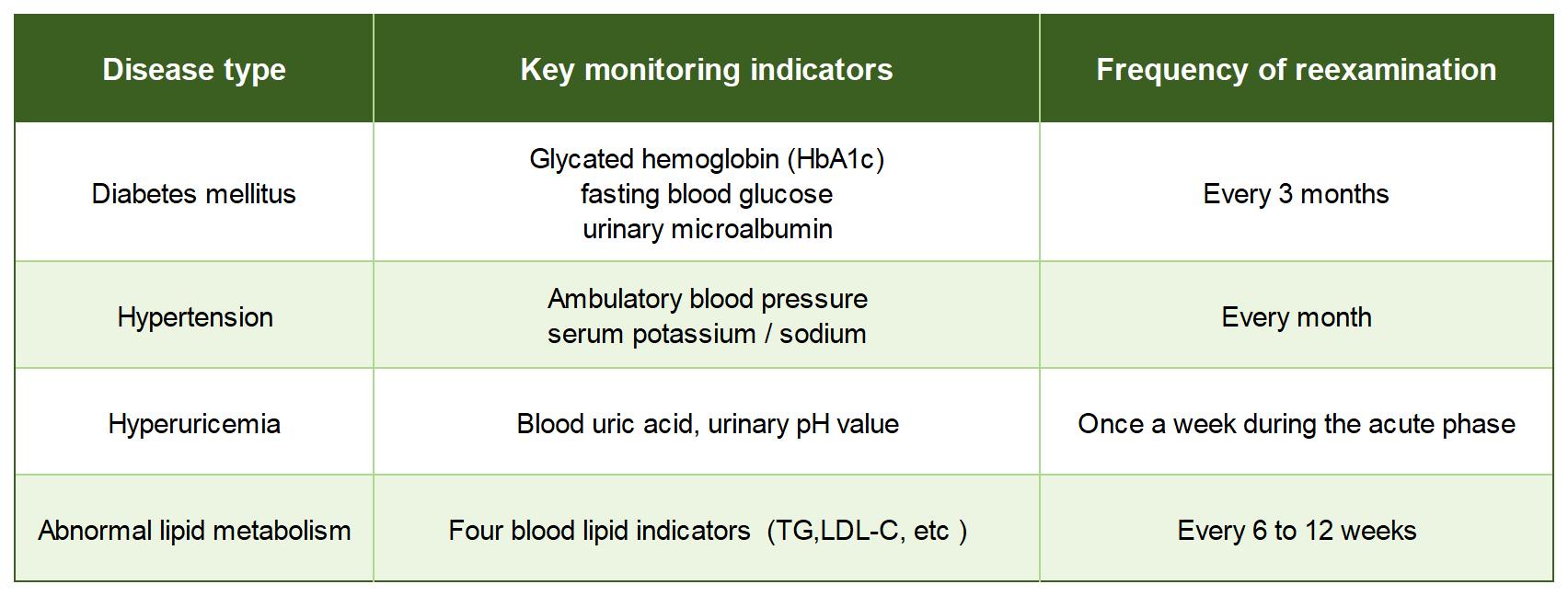
Implementation principles
Use steaming, boiling, and stewing for cooking, and frying or pan-frying is prohibited.
When there are multiple metabolic abnormalities, prioritize controlling the main risk (for example, in the case of diabetes mellitus combined with hypertension, control blood glucose first).
Nutrition education: Use food models or apps to record the diet, and follow up regularly at the nutrition outpatient clinic.
Note:
All plans need to be combined with individualized drug treatment (such as antihypertensive drugs and hypoglycemic drugs).
For those with abnormal liver and kidney functions, the intake of protein or purine needs to be adjusted.
Pregnant women and the elderly need to supplement specific nutrients additionally.
Biochemical monitoring
Osteoporosis: Serum 25(OH)D (≥50nmol/L), urine calcium/creatinine ratio.
Thyroid abnormalities: Detect thyroid-stimulating hormone (TSH), free triiodothyronine (FT3), and free thyroxine (FT4) every 3 to 6 months.
Weight management: It is advisable for obese people to lose 2-4kg of weight per month to avoid metabolic disorders caused by excessive speed.
Individualized adjustment: Pregnant women and the elderly need to consider the needs of their life cycles (for example, the elderly should increase whey protein intake to prevent sarcopenia).
Note:
The above plans need to be implemented under the guidance of a doctor or a dietitian.
Patients with chronic diseases need to combine drug treatment.





